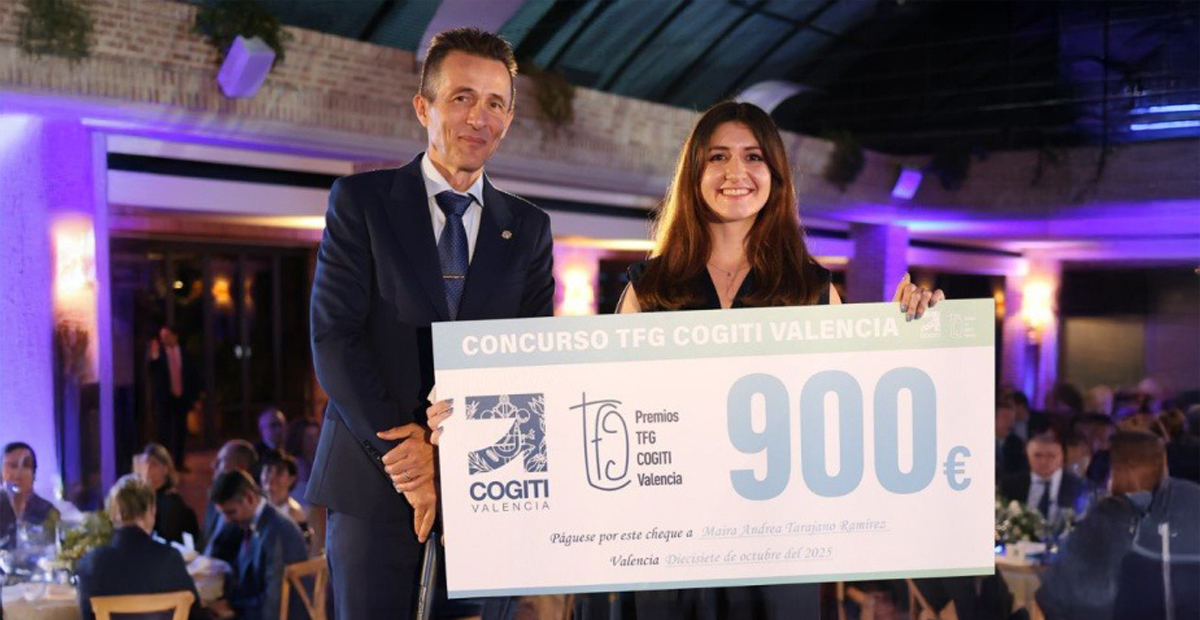Maira Tarajano Ramírez, student of the Degree in Industrial Design and Product Development Engineering at the Universitat Politècnica de València (UPV), has been recognized with the Best Final Degree Project Award granted by COGITI Valencia thanks to her innovative project: a multifunctional device designed to offer practical solutions during prolonged power outages.
Of Venezuelan origin and with dual Spanish nationality, Maira explains that she decided to come to Spain “in search of a better life”, since “it is not easy to live in Venezuela”. Her choice of UPV was based on the attractive curriculum and the campus environment, where she claims to have found the ideal space to develop her creativity. With a clear technical vocation, he dreams of working in a technical office in Valencia, a city he considers “very developed in the field of industrial design”.
His project, focused on functionality and sustainability, responds to a need he knows firsthand: the frequent blackouts in his native country. “I wanted to make something functional, not something merely aesthetic. A product that would be useful in real life,” he says.
The device combines energy autonomy, sustainability and versatility. It is made of sustainable materials and has a charging autonomy of more than eight hours, making it a reliable tool during emergencies. It incorporates three charging points that allow powering different devices simultaneously and an integrated solar panel that guarantees its operation even without access to the power grid. In addition, Maira has calculated an approximate cost of 500 euros per unit, which would allow it to be marketed as part of emergency kits for both homes and institutions.
The idea, inspired by her personal experience with blackouts in Venezuela, became even more relevant when, during the development of the project, a blackout occurred in Spain, a moment in which the young designer reaffirmed the universal utility of her proposal.
With this recognition, Maira Tarajano not only celebrates the academic success of her Final Degree Project, but also the potential of her design to provide real and sustainable solutions to a problem that affects millions of people around the world.
